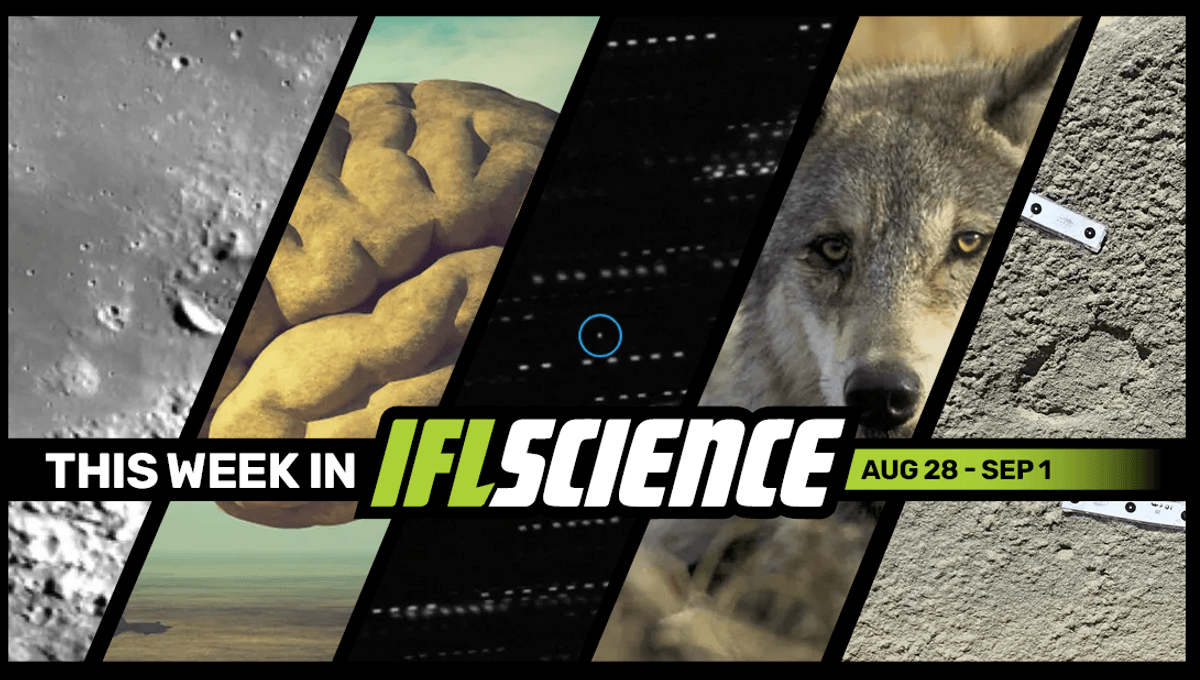
This week we may finally have discovered why humans have such big brains, a Harvard astronomer claims to have recovered pieces of an interstellar object, the role of predators in keeping ecosystems healthy has been explored in a myriad of ways, and ancient footprints suggest humans were wearing shoes 148,000 years ago. Finally we take a look at Dollo’s law of irreversibility and what it means for evolution.
Subscribe to the IFLScience newsletter for all the biggest science news delivered straight to your inbox every Wednesday and Saturday.
Indian Moon Rover Hits Jackpot, Detects Wealth Of Elements At Lunar South Pole
India’s Chandrayan-3 lunar mission is proving a scientific success as well as a technical triumph, with its Pragyan rover successfully analyzing the composition of the Moon’s surface close to the lunar south pole and discovering a wealth of elements there, including sulfur, calcium and oxygen. Read the full story here.
We May Finally Know Why Humans Have Such Big Brains
The size of the human brain has roughly tripled over the past 4 million years of hominid evolution, yet the factors driving this expansion are not fully understood. Attempting to solve this conundrum, a very brainy biologist has devised a computer model that recreates the development of our cognitive contraption, revealing that the human cerebrum may owe its size to our pattern of sexual maturation. Read the full story here.
Harvard Team Claims They Have Recovered Pieces Of An Interstellar Object
A controversial Harvard physicist who claims aliens may have visited the Solar System spent last month searching the Pacific Ocean for remnants of an interstellar object, and claims he found it. Read the full story here.
Predators Are Crucial For Healthy Ecosystems, And Not Just As Hunters
Staring down the toothy jaws of a wolf, you might not imagine it’s an animal that needs the help of us bald apes to get by – but across the world, we’ve seen that predator populations are declining. Protecting these species isn’t just crucial for their own survival, but also for the continued healthy function of ecosystems, as new research has pinpointed the irreplaceable role they play. Read the full story here.
Ancient Footprints Suggest Humans May Have Worn Shoes 148,000 Years Ago
A new analysis of ancient footprints in South Africa suggests that the humans who made these tracks might have been wearing hard-soled sandals. While researchers are reluctant to shoehorn in any firm conclusions regarding the use of footwear in the distant past, the prints’ unusual characteristics may provide the oldest evidence yet that people used shoes to protect their feet from sharp rocks in the Middle Stone Age. Read the full story here.
Feature of the week:
Is Reversing Evolution Possible? Exploring The Implications Of Dollo’s Law
Back in 1893, Belgian paleontologist Louis Dollo developed the principle that, once a structure is lost in evolution, then it is lost forever. It basically treats evolution like a one-way street and that evolution is not reversible. This simple concept became known as Dollo’s law. However, the law may not be as simple as you might think. Read the full story here.
More content:
Check out season 3 of IFLScience’s The Big Questions Podcast, so far we’ve asked:
• How Is Climate Change Affecting Polar Bear Populations?
• Why Is Space Junk Such A Big Deal?
• Can We Save A Species On The Very Brink Of Extinction?
• How Does A Quantum Computer Work And How Will They Change The World?
• What Is Space Weather And How Does It Affect Us?
• What Is Ancient Ice Telling Us About The Future?
PLUS, have you seen our free e-magazine, CURIOUS? Issue 14 September 2023 is out now. Check it out for exclusive interviews, book excerpts, long reads, and much more.
Source Link: Indian Moon Rover Hits Jackpot At Lunar South Pole, We May Finally Know Why Humans Have Such Big Brains, And Much More This Week